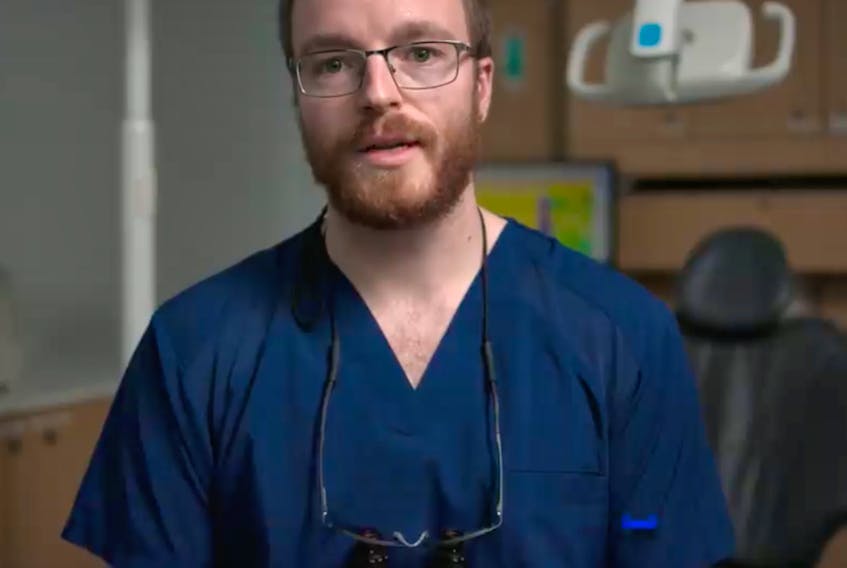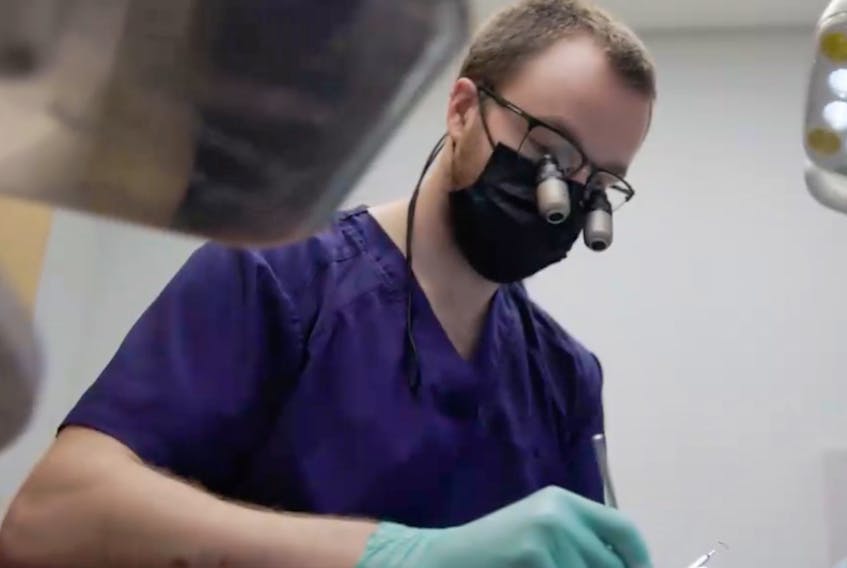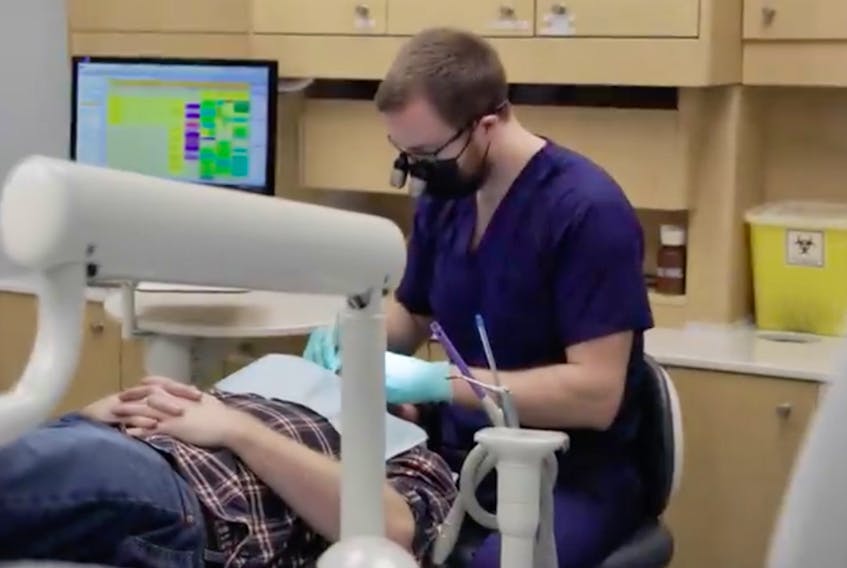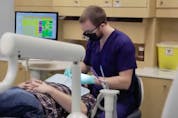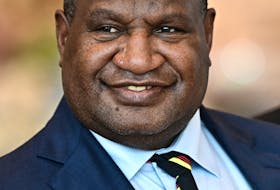What are your teeth worth to you?
Not abstractly, but in cold, hard cash?
It sounds like an absurd question, but it’s one millions of Canadians must wrestle with every year.
Despite universal health care, people pay for something no less connected to their health than a limb or an internal organ.
Brandon Doucet, a dentist and advocate from Saint John, N.B. ,who practises in Springhill, N.S., has written a book on access called "About Canada: Dental Care."
“I think something that's shocking for a lot of people to realize is the number of people who lack access to dental care," Doucet says.
"It’s not the person falling through the cracks but rather large sections of the population."
He hears stats like one in three Canadians lack dental insurance and more than one in five avoid the dentist each year because of financial constraints.
If you haven’t wrestled with the question of how much your teeth are worth, Doucet is sure you know somebody who has.
Cracks in the system
Andre Guimond knows he’s among the lucky group of Canadians with dental coverage.
He’s a union insulator in Saint John. Before he was in the union, he was a student at the University of New Brunswick’s Saint John campus. And, like a lot of young Canadians, he was able to be on his parents’ coverage up until he finished university.
Afterward, he moved out west to British Columbia and worked planting trees. He didn’t have coverage anymore, but he wasn’t worried.
“I figured, you know, I'm pretty good. I just had 21 straight years of yearly cleanings and checkups, right? Wrong.”
In the Kamloops wilderness, Guimond stopped for a peanut butter and jam sandwich when he felt something give.
“I was coming out of the land eating, going to bag up again and go make some more money. And I was like, ‘What? My tooth just broke!’”
This started a process familiar to those who have worked without insurance or paid time off. First, Guimond had to ask his employer for a car to get to an appointment. Then, he had to miss work for the appointment. And, because it was emergency care, he had to pay more.
“I had to do all these things just to get there to then be slapped with an even bigger bill and then, as a result of that, the pain that I dealt with and, honestly, like weird shame and guilt,” he says.
A month before his tooth broke, Guimond had to fly home to Saint John for his uncle’s funeral — not a cheap flight — and then back to B.C.
Having just dealt with a painful loss, he had to face down a dentist’s bill that he also couldn’t afford.
“Nobody should ever have to deal with that, not in a country like Canada where we have as many resources as we do, and we claim to have universal health care and we claim to care about people's health.”
Ounce of prevention
Doucet says patients without coverage typically end up in a double bind. Not only are they unable to afford emergency care, but they also know these emergencies would have been avoided if they had money for regular checkups.
“I work in the federal prison system now. I see full grown adults regularly tell me ‘I've never been to a dentist in my life' because they grew up poor,” says Doucet.
“Lacking access to dental care can also mean you know you skip cleanings because you can't afford to get cleanings. Or you opt for an extraction rather than a root canal because you can't afford to save the tooth.”
And insurance is no guarantee a person’s needs will be met, either.
“Even if they have dental insurance, because dental insurance has yearly limits, it has co-payments, it doesn't cover all of the procedures. There are still so many problems.”
People whose coverage lapses, or who never had it to begin with, face difficult choices. And while there is a patchwork of programs designed to help the most vulnerable, and some movement on the federal level towards addressing the issue, Doucet says it’s not enough.
“What ends up happening when you have those targeted programs is it’s viewed as welfare rather than health care. There tends to be resentment from the people who don't benefit from it,” he says. “So, these programs end up being unpopular or less popular than universal programs and they’re more easy to erode politically.”
Tooth Decay
Doucet points to the fact that targeted programs used to account for 20 per cent of overall dental spending in Canada in the 1980s, decreasing until the current five to six per cent. And taxpayers are not “saving” money.
“We spend over 150 million dollars every year on people going to the emergency department for dental pain,” he says. “This accounts for about one per cent of all ER visits. People who can’t afford to go to the dentist, they end up in emergency departments.
“Why don't we just be more proactive and invest in public dental programs? When people go to the emergency department, they get antibiotics and a pain medication. They still need to see a dentist afterwards. So, this money is just wasted. If we could have just invested and make sure these people could go to a dentist in the first place.”
Oral arguments
This is complicated. Doucet had to write a book just to begin addressing the topic. But for both him and Guimond, it’s about building an equitable system, one that doesn’t leave people at the whims of good genetics or a decent job.
“I care deeply about all the people who don’t have dental care because I ... realize how much it has affected my life and how much it could potentially affect somebody else’s,” says Guimond. “And how quickly it can be taken away from you.”
Doucet adds that the price of not providing universal dental care is borne by everyone.
“The cost out of pocket people face, and the cost to society of people lacking access to dental care; people having to go to emergency departments; people suffering needlessly because of lack of access to dental care,” he says.
“I think when we factor in those costs, we realize we can't afford to not have universal dental care. We can't afford the status quo.”

